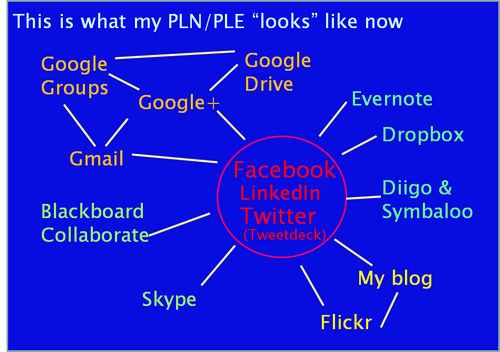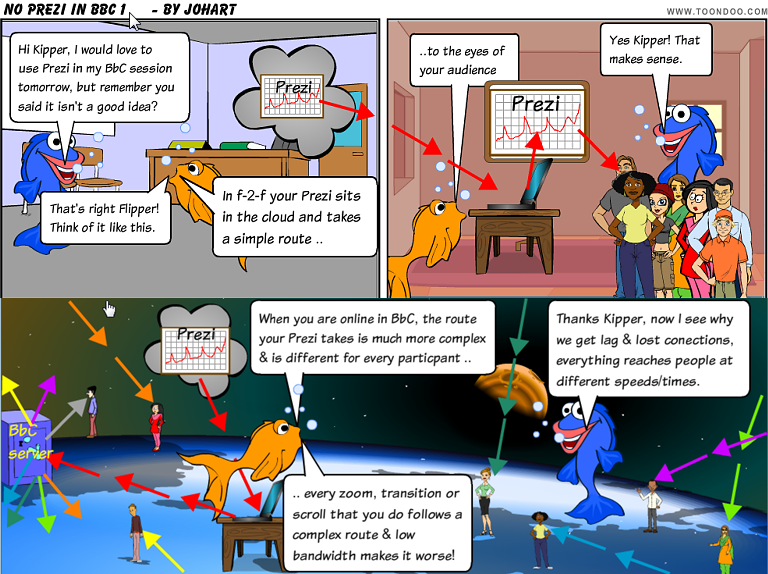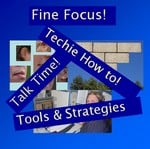This post is a cross-posting from the West Australian Adult Literacy and Numeracy network newsletter, so apologies if you have seen it twice. I wrote it in response to a query on our network of literacy/numeracy practitioners in WA most of whom are quite new to online tools and strategies.
Introduction
This question was posed in response to a recent post by Phil (@philhart) on our Western Australian Adult Literacy and Numeracy (ALaN) network GoogleGroup – Phil shared a site called Visuwords, an online graphical dictionary that gives a visual representation of associations between words. Phil’s answer was that he gets many of these kinds of links via his Personal (Professional) Learning Network (PLN).
Like Phil I have an extensive, global PLN – mine is in excess of 4,000 educators globally with fewer than 20% of these in Australia and less than 10% in WA. I find this network invaluable in helping me to stay up to date and innovative in my teaching and learning. The inevitable next questions are of course “What is a PLN, how do I get one, and what are the benefits?”
A PLN is …
A PLN is a network of people often, but not always, with similar interests to your own. We all have a PLN of some sort even if it is just the network of colleagues we meet through our daily work. However the most useful and effective PLN is one which extends outside our own day to day physical environment, outside our own specialist teaching area and outside our particular educational sector.
My own PLN is global, cross-disciplinary and cross-sectoral. It makes considerable use of social media and online tools in general. So my Personal Learning Environment (PLE) through which I access my PLN is largely electronic. The main point here is that no two PLN’s are the same! We all have our own preferred balance of people and communication environments/strategies. Mine (like most others) has evolved over time and now looks something like the diagram below.
 I expect that my PLN will continue to change and evolve – I currently use a variety of platforms so that I don’t miss out on posts from people for whom I have enormous professional respect but who don’t use my preferred platform for the majority of their interactions.
I expect that my PLN will continue to change and evolve – I currently use a variety of platforms so that I don’t miss out on posts from people for whom I have enormous professional respect but who don’t use my preferred platform for the majority of their interactions.
Getting a PLN
There are many different strategies for developing your own PLN. Mine started inadvertently, when a fellow e-learning enthusiast who was also a Vocational Education and Training lecturer but in a different college introduced me to Twitter. This is still my “favourite” PLN environment although I now use many other social networks as well. Many members of my own PLN have been introduced to the concept and started developing their own PLN through PD activities. If you are thinking about building your own PLN there are a few strategies that can be particularly useful:
- Start with one social media platform – find a mentor on that platform who is very experienced and has a medium to large network of their own.
- Sign up to the platform – make sure you complete your profile and have an avatar, many potential followers/friends won’t connect with you unless they have a little information about you
- Don’t rush it – allow your contacts to grow fairly slowly at least initially
- Give as well as taking – join conversations, make comments, share resources and links
- Be social, be human – the social interactions are important despite the derision you see levelled at some platforms regarding the triviality of some posts, social interaction – the personal relationship “oils the wheels” of the professional relationship.
If you are interested in further developing your PLN then leave a comment here and consider participating in some of our regular webinars because if enough people are interested we could do some webinars specifically on this. If you are going to take the plunge anyway and your chosen platform is any of: Twitter, Facebook, Google+ or LinkedIn then please feel free to follow/friend, or whatever the connection label is, me. You can find me as follows:
- @JoHart on Twitter, https://twitter.com/JoHart
- Jo Hart on Facebook, https://www.facebook.com/johartoz
- Jo Hart on LinkedIn, http://au.linkedin.com/pub/jo-hart/20/609/639
- Jo Hart on Google+, https://plus.google.com/105582419950416594172/about
I do check out profiles before I connect back (because like all online contexts there are plenty of “black hats” out there) although if I already know you from another context I may not. I will usually connect back within a few days.
What are the benefits?
The benefits are many! The list below is just a few of the positive gains shared by members of my PLN:
- Keeping up with innovation in education
- Links to great tools and resources
- Instant help with tech problems and other questions
- Learning, learning always learning!
- Support in coping with issues
- Sharing, sharing and sharing again!
- Opportunities for global collaboration on projects
- Opportunities for PD through online discussions
- Overseas “E-visitors” to classes (via Skype or similar)
- Broadening perspective from local to global
- Learning about other cultures
- Never feeling isolated at a conference (someone from your PLN is almost certainly there!)
- People (that you feel you already know) to meet up with when overseas/away from home
- Someone to “talk” to in the small hours – there is always someone awake
Some members of my own PLN have become good friends without us ever meeting! When chance gives us opportunities to meet there is none of the awkwardness of strangers meeting for the first time. This is a huge benefit for me as, despite my advanced age and years of teaching, I am quite shy when meeting strangers.
Conclusion
For more ideas about PLNs checkout this post “What the heck is a PLN?” by a West Australian teacher with a global presence who is part of my PLN and is now a good “real face-to-face” friend that I first “met” online via Twitter.
For me personally the global nature of my own PLN and the opportunity to be involved in learning from such a diverse group are the “icing on the cake”! I have been immeasurably enriched by many people in my own PLN and can only hope that I am able to “pay this forward” in some way.


